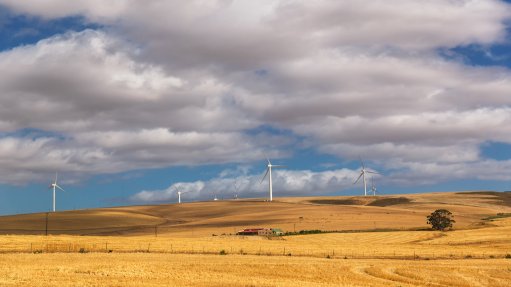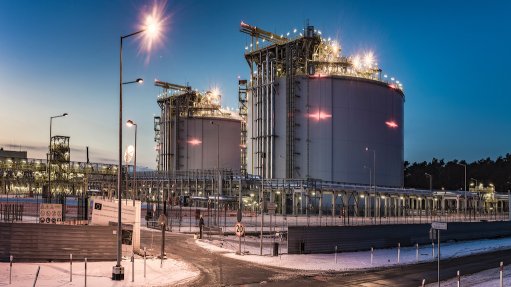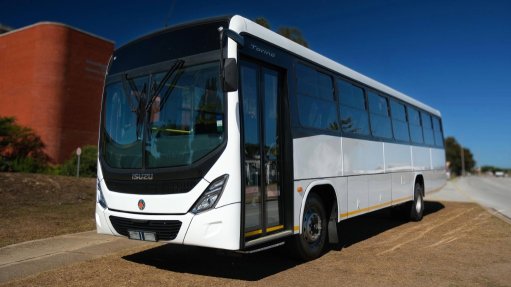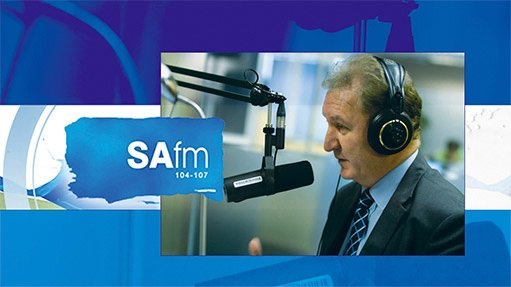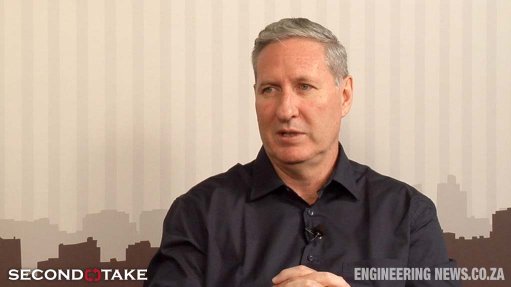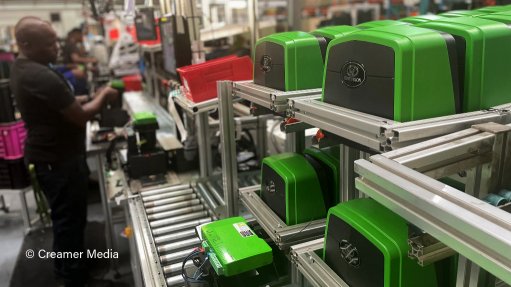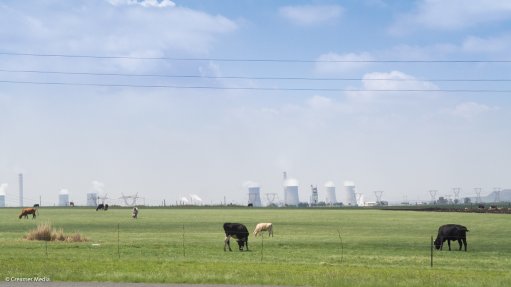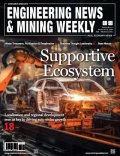Africa’s mobile network operators seek renewable energy for connectivity
As Africa embraces the digital age, and demand for robust, reliable digital connectivity rapidly increases, the continent’s energy challenges are negatively affecting mobile network operators and their customers.
Despite an abundance of renewable energy sources, such as solar, wind and hydropower, half of the continent’s population – about 600-million people, mostly in sub- Saharan Africa – lacks access to clean electricity, says Vodacom Group chief technology officer Dejan Kastelic.
While Africa faces many challenges in its renewable-energy journey, there is a considerable opportunity to accelerate the adoption of renewables, modernise power infrastructure and improve connectivity, while also making significant contributions to global climate change mitigation efforts.
Further, mobile network operators can actively participate in developing and implementing innovative solutions while working with governments and other private-sector partners to prioritise investments in energy infrastructure, focusing on sustainable and renewable sources.
Traditionally, mobile network operators’ highest energy consumption comes from base station sites, with thousands spread throughout the continent.
“For example, our base station sites and technology centres account for 95% of our energy consumption, emphasising the need to prioritise larger-scale off-grid renewable electricity generation to decarbonise, owing to the distributed nature of mobile networks,” he explains.
Driving energy efficiencies and managing energy consumption across mobile networks by upgrading legacy equipment, prioritising energy-efficient cooling technologies and designing fit-for-purpose energy-efficient sites can help reduce costs and greenhouse-gas (GHG) emissions.
In addition, seeking clean, affordable energy alternatives to diesel-powered generators, such as wind and solar power, and technologies such as green-hydrogen-fuelled microturbines and fuel cells, can help to maintain connectivity while transitioning the industry towards a more sustainable future.
Diesel-powered generators are often used as a primary or secondary source of power generation, especially in remote areas or when grid-supplied electricity is unreliable, and if power interruptions increase, so does mobile operators’ fossil fuel consumption, with hundreds of millions of litres of diesel used each year to power their infrastructure.
“Solar and wind solutions are well advanced from a development perspective but, owing to the intermittentness of the solutions, they provide significant challenges in providing power 24/7. Green fuels, microturbines and green hydrogen solutions can be significantly more expensive and require large capital investments and scale for feasibility,” says Kastelic.
Vodacom, which aims to achieve net-zero GHG emissions from its operations, classified as scope 1 and 2, by 2035 and to match 100% of the grid electricity it uses with energy from renewable sources by 2025, is looking to scale its on-site solar to align with global efforts to mitigate climate change, while ensuring the resilience of critical communication infrastructure.
“As of March 2024, we had 1 773 sites powered by solar energy across our group. Our new rural base stations prioritise being entirely solar-powered or deployed as a hybrid solution using solar and grid and, as a last resort, diesel generators where grid is not available. We have also tested the feasibility of self- replenishing fuel cell technology and microgrids for alternative energy sources,” he continues.
“Further, we are finding innovative ways to ensure the communities we serve can access affordable renewable energy and benefit from transformative connectivity.”
He cites a partnership, in Mozambique, between Vodacom, M-Pesa and ENGIE Energy Access.
The partnership’s initiative, MySol, is a pay-as-you-go solar home system which comprises two LED bulbs and phone charging capabilities for the “price of one candle a day”.
By March 2024, the initiative had reached about 217 968 households, impacting more than one-million people.
In the long term, Kastelic explains, power purchase agreements can provide a mechanism to procure renewable electricity, usually at a lower cost, from independent power producers (IPPs).
“Working with governments to change regulations and allow for renewable independent power production, mobile network operators can help facilitate opportunities to modernise infrastructure and power generation. “This can enable renewable power purchasing in Africa and build a more accessible market for clean energy access where it was previously not possible.”
Following an agreement with government to supply power from its renewable projects, 65% of Vodafone Egypt’s electricity consumption is now sourced from renewable energy.
A landmark virtual wheeling agreement with State-owned power utility Eskom in South Africa enables Vodacom to procure large-scale renewable energy from IPPs, underpinned by a virtual wheeling platform developed by Vodacom subsidiary Mezzanine.
“This will help to contribute renewable power to the national grid and enable us to progressively offset our Scope 2 emissions from our own operations,” he says.
He concludes that collaboration plays a pivotal role in amplifying the impact and progress of these clean energy initiatives.
“There continues to be scope for private- public collaboration to accelerate Africa’s renewable energy potential, meet the Sustainable Development Goals, and ensure inclusive access to essential energy services. As drivers of innovation, mobile network operators continue to play a significant role in overcoming the challenges of the continent’s energy predicament and connecting the continent to a better future.”
Article Enquiry
Email Article
Save Article
Feedback
To advertise email advertising@creamermedia.co.za or click here
Comments
Announcements
What's On
Subscribe to improve your user experience...
Option 1 (equivalent of R125 a month):
Receive a weekly copy of Creamer Media's Engineering News & Mining Weekly magazine
(print copy for those in South Africa and e-magazine for those outside of South Africa)
Receive daily email newsletters
Access to full search results
Access archive of magazine back copies
Access to Projects in Progress
Access to ONE Research Report of your choice in PDF format
Option 2 (equivalent of R375 a month):
All benefits from Option 1
PLUS
Access to Creamer Media's Research Channel Africa for ALL Research Reports, in PDF format, on various industrial and mining sectors
including Electricity; Water; Energy Transition; Hydrogen; Roads, Rail and Ports; Coal; Gold; Platinum; Battery Metals; etc.
Already a subscriber?
Forgotten your password?
Receive weekly copy of Creamer Media's Engineering News & Mining Weekly magazine (print copy for those in South Africa and e-magazine for those outside of South Africa)
➕
Recieve daily email newsletters
➕
Access to full search results
➕
Access archive of magazine back copies
➕
Access to Projects in Progress
➕
Access to ONE Research Report of your choice in PDF format
RESEARCH CHANNEL AFRICA
R4500 (equivalent of R375 a month)
SUBSCRIBEAll benefits from Option 1
➕
Access to Creamer Media's Research Channel Africa for ALL Research Reports on various industrial and mining sectors, in PDF format, including on:
Electricity
➕
Water
➕
Energy Transition
➕
Hydrogen
➕
Roads, Rail and Ports
➕
Coal
➕
Gold
➕
Platinum
➕
Battery Metals
➕
etc.
Receive all benefits from Option 1 or Option 2 delivered to numerous people at your company
➕
Multiple User names and Passwords for simultaneous log-ins
➕
Intranet integration access to all in your organisation






